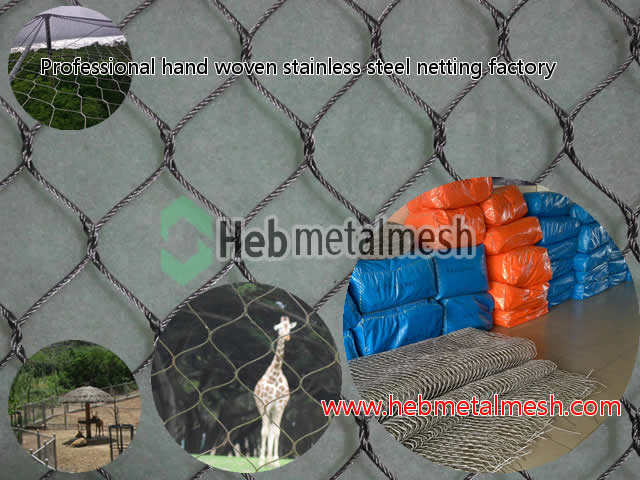Introduction to Deer Fencing
✅Choose a best specification and size for your need.
✅Contact for your customized panel size and need.
The implementation of deer fencing has become an essential strategy for protecting gardens, farms, and zoos from the increasing challenges posed by deer populations. As deer are known for their voracious appetites, they can wreak havoc on valuable plants and crops, leading to significant economic losses and diminished aesthetic value. The need for an effective deer fence garden has never been more pertinent, particularly as urban expansion encroaches on their natural habitats, prompting deer to seek food sources in populated areas.
Deer are not only active browsers but also capable of jumping over fences that do not meet adequate height specifications, making a robust deer fencing solution crucial for any garden setting. The potential for damage is substantial; a solitary deer can consume a considerable amount of foliage in a single night. This is particularly problematic for vegetable crops, fruit trees, and ornamental plants commonly found in home gardens. Thus, a well-constructed fence acts not only as a physical barrier but also as a proactive measure to sustain the health of cultivated lands.
Durable and effective fencing systems are designed to withstand the pressures from wildlife while providing long-term protection. Stainless steel mesh panels have emerged as one of the most suitable options for deer fencing due to their resilience and reliability. These panels resist rust, are difficult to chew through, and can withstand the seasonal changes that might weaken other materials. By integrating solutions such as stainless steel mesh with adequate height and tension, gardeners can significantly minimize the impact of deer intrusion, allowing their plants to thrive free from the threat of overbrowsing.
Why Choose Stainless Steel Mesh Panels for Deer Fencing
Stainless steel mesh panels have become a preferred choice for deer fencing in gardens due to their numerous advantages over traditional materials. One of the primary benefits of using stainless steel is its exceptional durability. Unlike wood or plastic, stainless steel is designed to withstand harsh environmental conditions, making it an ideal option for outdoor applications. This resilience helps maintain the integrity of the deer fence garden for many years, even in the face of extreme weather.
Another significant advantage of stainless steel mesh panels is their resistance to rust and corrosion. Many outdoor materials deteriorate quickly when exposed to moisture and varying temperatures; however, stainless steel is explicitly formulated to resist these issues. This characteristic ensures that the fencing remains structurally sound without requiring frequent replacements or repairs, thus providing a long-term solution for keeping deer at bay.
The long lifespan of stainless steel also contributes to its cost-effectiveness. Although the initial investment may be higher than other materials, the maintenance-free nature and durability of stainless steel mesh panels result in lower overall costs over time. Additionally, there are environmental benefits to consider; stainless steel is entirely recyclable and promotes sustainable practices by minimizing waste associated with frequent replacements common in other fencing materials.
Moreover, stainless steel mesh panels can be easily customized to fit various garden designs and layouts, making them versatile for gardeners looking to protect their plants without compromising aesthetics. With options for different mesh sizes and configurations, these panels can effectively deter deer while maintaining an open feel that allows gardeners to enjoy their outdoor spaces fully.
In conclusion, the choice of stainless steel mesh panels for deer fencing offers considerable benefits, including durability, resistance to rust and corrosion, a long lifespan, and customizable options to suit diverse gardening needs. This makes stainless steel a superior choice for ensuring the protection of gardens from deer damage.
Mesh Sizing: Finding the Right Fit from 2″ to 4″
Choosing the appropriate mesh size for a deer fence garden is crucial for effective wildlife control. The mesh size you select can significantly influence the deterrence capabilities of your fencing system, depending on various factors such as deer behavior, the specific location, and the intended use of the garden or area. When considering sizes ranging from 2 inches to 4 inches, it is important to understand how these dimensions can play a role in keeping deer away.
A 2-inch mesh size generally offers more effective protection against smaller deer species and fawns that are capable of squeezing through tighter spaces. This size is recommended for residential gardens or smaller landscapes where the focus is on maximizing the barrier against young deer and other small animals. Additionally, a tight-knit configuration such as this may deter other types of wildlife, which could also pose a risk to garden plants.
Conversely, a 4-inch mesh size may be more suitable for larger open areas, such as farms or larger public gardens, where there is a lesser concern about smaller animals getting through. This size allows for better visibility and airflow, which can be advantageous in a farming context where crops require a certain level of light and air circulation, yet still offers a strong deterrent for adult deer. For properties such as zoos that house larger species, opting for a 4-inch mesh size can maintain safety without completely hindering the natural aesthetic of the habitat.
Ultimately, selecting the appropriate size for a deer fence garden requires careful consideration of the specific needs of the area and an understanding of deer behaviors. By assessing the environment and the type of deer populations present, one can make an informed decision that will enhance garden protection while ensuring that the physical barriers blend well within their surroundings.
Black Oxide Coating: Aesthetic and Functional Benefits
The application of black oxide coating to stainless steel mesh panels presents both aesthetic and functional advantages that make them a desirable choice for deer fence gardens. From an aesthetic standpoint, the sleek black finish can enhance the overall appearance of a garden, creating a modern and refined look. This neutral tone allows the fencing to blend seamlessly into the natural landscape, making it less obtrusive and allowing the beauty of the plants and flowers to take center stage. The sophisticated appearance of black oxide-coated panels appeals to garden enthusiasts who wish to maintain an elegant environment while safeguarding their space against deer intrusion.
Functionally, black oxide coating serves as an extra layer of protection for stainless steel mesh panels. This particular coating enhances the corrosion resistance of the panels, significantly reducing the risk of rust formation over time. Gardens, often located in various climates, face the threat of moisture and other environmental factors that can lead to deterioration. A black oxide coating effectively shields the metal from these harsh conditions, thereby extending the lifespan of the deer fence garden installation. Additionally, the coating offers protection against UV damage, preserving the integrity and visual appeal of the panels under prolonged sun exposure.
Moreover, the black oxide finish contributes to a non-reflective surface, which further aids in blending into the garden setting. Unlike traditional metallic finishes that can reflect sunlight and draw attention to the fencing, the matte nature of black oxide ensures that the fencing remains discreet. In conclusion, choosing stainless steel mesh panels with a black oxide coating not only elevates the visual aesthetics of a garden but also enhances durability, making it an excellent option for those looking to fortify their outdoor spaces against deer while maintaining an attractive environment.
Custom Solutions for Deer Fencing Needs
Custom solutions for deer fencing are vital, especially when considering the varying landscapes and needs of different gardens and farms. Businesses specializing in deer fence garden solutions understand that a one-size-fits-all approach is rarely effective. Various configurations, heights, and panel sizes can be developed to meet the unique requirements of each environment, ensuring that the fencing system is both functional and aesthetically pleasing.
For instance, a garden surrounded by dense woods may require a taller deer fence garden to prevent animals from jumping over, while a flat, open field might benefit from a lower fence combined with effective deterrents. By assessing the specific challenges posed by local wildlife, businesses can recommend the ideal panel size and fencing arrangement, taking into account the behavior of deer and other potential intruders. This customization often involves extensive collaboration between the supplier and property owners to create a system that is robust and reliable.
Several case studies illustrate the effectiveness of tailored deer fencing solutions. In one example, a small organic farm in a rural area faced persistent deer invasions that threatened its crop yield. By working closely with a fencing consultant, the farm implemented a customized system with taller, closely spaced stainless steel mesh panels, which not only deterred deer but also integrated seamlessly into the farm’s landscape. As a result, the farm reported a significant reduction in deer encounters and an increase in overall crop production.
Ultimately, investing in a custom-deer fencing solution is a worthwhile endeavor for any garden or farm owner looking to protect their plants. By taking into consideration local conditions and individual needs, businesses can provide effective and sustainable fencing options that deliver long-term results.
Installation Tips for Stainless Steel Mesh Deer Fencing
Installing stainless steel mesh panels for deer fencing in gardens is a practical and effective solution for safeguarding your plants and landscape from foraging deer. To ensure a successful installation, several key considerations should be taken into account, starting with the height of the fence. Most experts recommend a minimum height of eight feet to deter deer effectively, as they are capable of jumping high. If your garden is particularly susceptible to deer activity, incorporating a taller fence can provide additional protection.
Next, proper anchoring methods are crucial for stability and durability. Stainless steel mesh fencing can be secured using concrete footings or tension wire. Concrete footings are ideal for creating a solid foundation, particularly in areas prone to high winds or soil erosion. Tension wire can be utilized at the bottom of the fence to prevent deer from pushing underneath. Ensuring the bottom of the mesh is tightly anchored reduces the likelihood of deer gaining access to your garden.
Post spacing is another important aspect of installation. Posts should generally be spaced 6 to 8 feet apart to provide adequate support for the stainless steel mesh panels. However, weather conditions and soil type may necessitate adjustments to this standard spacing. Consider consulting a local extension service or specialized fence installer for specific recommendations tailored to your location.
For those contemplating a DIY installation, it is essential to invest time in planning and gathering the necessary tools. A comprehensive guide or video tutorial can facilitate the process and help mitigate common pitfalls. However, if the project feels overwhelming, hiring professionals experienced in deer fencing installation can ensure optimal results and save time. Engaging experts can also provide peace of mind, as they will understand local regulations and any additional techniques pertinent to installing deer fence garden setups effectively.
Maintenance and Care for Deer Fencing
Maintaining stainless steel mesh panels in a deer fence garden is essential to ensure long-term durability and functionality. Regular maintenance not only prolongs the lifespan of the fence but also significantly reduces the risk of deer invasions, keeping your garden protected. One of the key practices is performing seasonal checks. At least twice a year, inspect the entire fence for any signs of wear or damage. This includes looking for rust, tears, or any structural issues in the mesh panels, as these can provide entry points for deer.
Cleaning your deer fencing is another crucial aspect of maintenance. Debris, such as leaves, dirt, and branches, can accumulate on the fence and hinder its effectiveness. Using a mild soap solution along with a soft-bristle brush, you can gently scrub the panels to maintain their appearance and function. Rinsing thoroughly with clean water will help eliminate any residue, ensuring that the fence remains visually appealing and effective in safeguarding your garden.
In addition to these routine checks and cleaning, it’s vital to address repairs promptly as they arise. Small tears or openings can be patched up using expandable mesh or tape specifically designed for metal fencing. For larger damages, replacing sections of the mesh panels may be necessary. Keeping a few extra stainless steel mesh panels on hand can make repairs easier and more efficient when issues arise.
Common problems to watch out for include bending or sagging of the panels, which can occur due to heavy snow or debris. Addressing these issues early can prevent further damage and ensure that your deer fence garden remains an effective barrier against wildlife. Proactive maintenance is key to creating a resilient defense system, reducing the likelihood of costly invasions by deer.
Comparing Costs and Value of Stainless Steel Mesh Panels
When considering the installation of a deer fence garden, one of the critical aspects to evaluate is the balance between initial costs and long-term value. Stainless steel mesh panels are a popular choice for deer fencing due to their strength, durability, and resistance to harsh weather conditions. Initial costs for these panels can vary depending on the gauge of the mesh, the height of the fence, and the manufacturer’s pricing. While stainless steel mesh panels may seem more expensive upfront compared to other materials like plastic or wood, their attributes often justify the investment.
The durability of stainless steel is a significant factor in its cost-effectiveness. Unlike wooden or plastic fences, which may require frequent replacement or extensive maintenance due to rot or damage, stainless steel mesh panels have a longer lifespan. They are less likely to succumb to rust, pests, or extreme weather, making them a reliable option for gardens in various climates. Over time, homeowners will find that while the initial expense is higher, the need for repairs or replacement diminishes, thus saving money in the long run.
Additionally, stainless steel mesh panels can enhance the overall aesthetic of a deer fence garden. Many property owners appreciate the clean, modern look of stainless steel, which can complement other landscaping features. This visual appeal can potentially increase property value, making it a wise choice from multiple perspectives. Thoroughly budgeting for a deer fencing project should include not just the initial expenditure, but also considerations for maintenance, durability, and property value enhancement. In summary, the investment in stainless steel mesh panels, although initially higher, can lead to substantial savings and benefits for gardens aiming to keep deer at bay effectively.
Conclusion: Securing Your Garden with Quality Deer Fencing
In this guide, we have explored various aspects of stainless steel mesh panels as an effective solution for deer fencing in gardens. One of the most significant benefits of using these materials is their durability and resistance to the elements. Unlike traditional fencing options, stainless steel mesh panels provide longevity, making it a worthwhile investment for protecting your garden from deer and other wildlife. These panels are not only strong but also provide an unobtrusive barrier that blends well with the natural surroundings.
Moreover, the ability of stainless steel mesh to allow for visibility while providing a physical barrier is a crucial advantage. This transparency lets garden owners enjoy the view of their landscaping, while ensuring that deer, which are known to be skilled jumpers, are effectively kept at bay. The design of the deer fence garden can also be tailored to specific needs based on the level of deer activity and the types of plants being protected. By understanding these elements, gardeners can make informed decisions to safeguard their crops and ornamental plants.
As you consider fencing options for your garden, it is vital to assess your particular requirements. Factors such as the size of your garden, the local deer population, and the types of plants you wish to protect will all influence your choice of fencing. Stainless steel mesh panels stand out due to their effectiveness and aesthetic appeal, making them an excellent choice for both residential gardens and larger agricultural applications. Ultimately, ensuring that you select the right deer fencing solution will lead to a thriving garden, free from the threats of deer damage.


